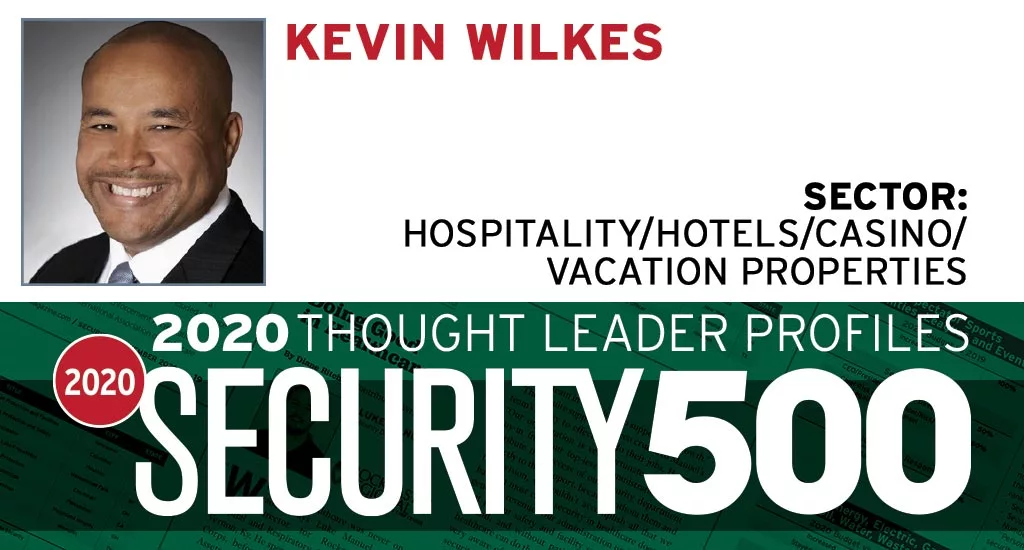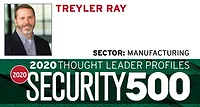Security 500 Thought Leader Profiles
Kevin Wilkes: Securing the Arts
Chief Security Officer

Kevin Wilkes never thought that he would work in enterprise security. But thanks to a want ad that called for police officers, Wilkes is enjoying his role as CSO for the Pittsburgh Cultural Trust, a non-profit arts organization that works to make the city of Pittsburgh a place where the arts can flourish.
After college, Wilkes joined the Pittsburgh Bureau of Police, where for 17 years, he worked as a detective, before moving to the FBI’s Major Offender Task Force and as a Special Deputy U.S. Marshal on the Greater Pittsburgh Fugitive Task Force. He then transitioned into the private sector, where he spent 10 years with Willis North America as the VP and Midwest Regional Director of Risk Control Services.
It was at Willis where Wilkes met the leadership team at Pittsburgh Cultural Trust. “That was shortly after the 2015 Paris attacks, which was notably the most targeted attack on the Bataclan Theater. The board of trustees, along with the executive leadership team of the Trust, decided it was time to launch a search for its first chief security officer in the 32-year history of the organization…I expressed interest in the opportunity, and here I am, four years later.”
The Trust operates within a 14-block cultural district area in downtown Pittsburgh that serves as the center of the city arts and entertainment scene. It attracts approximately two million people annually to thousands of events in its nine world-class theaters, five galleries, numerous outdoor art exhibits, public festivals, Broadway shows, concerts, and world-renowned artistic performances by the Pittsburgh Ballet, Pittsburgh Opera, Pittsburgh Symphony Orchestra, Pittsburgh Public Theater, Pittsburgh CLO and the August Wilson African American Center.
As one of the city’s largest property owners in the downtown area, the Trust is responsible for more than one million square feet of property and is a major economic driver of business in the district with an estimated annual economic impact of $303 million.
Security risks run the gambit, from incidents of mass attack, property crime, street crime, acts of workplace violence, employee dishonesty, weather, civil unrest, VIP and celebrity protection, and more. “Our Cultural District neighborhood is really a city within a city and our community is impacted by all those risks you would expect to see in such a diverse and dynamic setting,” Wilkes says. “Not only do these situations pose a risk to the Cultural Trust, but they may also serve as potential reputational risk exposures for the numerous corporate sponsors and supporters of our events who are closely affiliated and aligned with the Trust.”
A difficult part of his department’s job, he says, is that many of the stakeholders, internally and externally, are creative people who are extremely passionate in their views of the arts and how it should be consumed. “It can be a challenge at times to help them to understand that our role is to be of assistance in helping to facilitate a safe, secure, and now in the world of COVID-19, a healthy arts experience for all. Just as in academic environments, there are those in the arts community that believe in open accessible settings and venues. This can become problematic within a densely populated and heavily trafficked downtown urban area,” he says.
At the Trust, Wilkes had full autonomy in the creation of its security platform. “I’m sure many of my security counterparts and colleagues would agree that much of your success as a security leader can be determined by the level of trust, support and buy-in that you have with the C-suite,” he says. “Never cease in your efforts to earn their confidence in you as a trusted advisor.”
Another way that security’s value is measured is through routine surveys. “We are all ambassadors of our organization, from our security screeners, volunteers, front of house managers, campus security team, to me,” he says. “Outstanding-first class guest service is the big differentiator in our business and helps a person decide if they should stay home and watch Netflix or spend their evening with us. We read every comment, analyze them and look for opportunities to course correct, so we can grow and improve our guest interactions.”
Wilkes says it is no secret that the COVID-19 pandemic has wreaked havoc on the arts and culture community. Pittsburgh’s Cultural District organizations have been forced to cancel more than 3,000 events since March. “I think it can be agreed upon that the arts are places built for social interaction and not social distancing. We realize that once COVID-19-related restrictions are lifted there may be a level of anxiety initially. Therefore, our job must first be to help our staff and patrons have confidence in our health practices and let them know that it’s okay and safe to enjoy the arts again. Our crisis management team and other venue reactivation teams have been collaboratively working together on this task. Our primary guiding principles will be used to inform, govern, and direct all of our reopening decisions.”
In his free time, Wilkes likes to “leisure” travel, calling himself a “former beat cop who tries to find ways to become more cultured and refined in my new environment.”
Looking for a reprint of this article?
From high-res PDFs to custom plaques, order your copy today!








